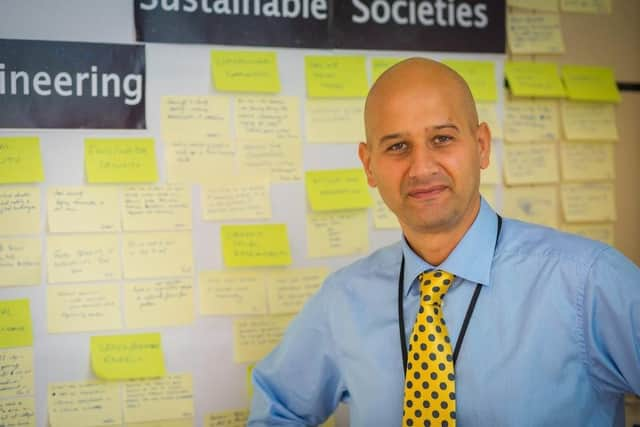Data analytics and AI are a massive opportunity for Yorkshire - Professor Zahir Irani
Organisations across every sector — from retail, healthcare and finance to agriculture and HR — know their operations can be improved with data science: the kinds of new insights from understanding big data that lead to cost savings, efficiencies and added productivity. But, for the moment, the people and skills aren't quite there to take advantage and fill this ever-increasing skills gap.
There are estimated to be 35,000 data scientist vacancies in the UK, even now, when relatively few businesses are in a position to adopt AI, machine learning and other tech. Between 2018 and 2020, the average data scientist salary jumped 31 per cent to £60,000.
Advertisement
Hide AdAdvertisement
Hide AdThe consequences of the urgent need for skills is being seen at the University of Bradford. In the space of just three years, the University has gone from having no course offerings to now having the largest postgraduate AI and data analytics student population in the UK. Bradford, having adopted an ‘applied’ perspective with a focus on practical issues and applications, has the most postgraduate enrolments in applied artificial intelligence and data analytics, 100 in 2020/21, up to 285 in 2021/22.


A fair proportion of those numbers of students have come to Yorkshire from overseas to access expertise and gain an industry-recognised qualification, alongside more local students. Many of the postgrad students will have jobs before they even graduate with employers like NHS Trusts. Sebastian Obeta, originally from Nigeria, for example, graduated from the programme in June 2022 but had already been recruited by the University of Cambridge to work as a data scientist three months’ earlier. Other students are in the process of setting up their own businesses locally.
All of this matters for the wider region. Levels of interest continue to grow. And so, as activities continue to build around Bradford, there will be a large, UK-leading network of expertise, academics, alumni and all of their business and industry contacts. More opportunities, more innovation, more collaboration, more new businesses starting up in the city and the region to take advantage of the network and pools of skills.
An area like AI and data science is ideal for the region, because it’s new, involving a brand new set of skills and knowledge. No old established order to compete against, or walls of prejudice to break down. The opportunity to become the home of AI is up for grabs. With this local stream of talent and networking, more regional businesses will be able to realise the benefits of data science, gain a competitive advantage, and do better in the wider competition for talent nationally. And for the local population there is the prospect of new job creation and a real route to social mobility. These kinds of skills will change lives.
Advertisement
Hide AdAdvertisement
Hide AdWhat’s needed now is for our regional companies to develop their internal talent as well as bringing in those with the new technical and personal skills that can help to propel their businesses to new heights: using data to support business design, modelling and analysis; collectively improving productivity and supporting new innovations — creating a region in a position to distinguish itself and flourish.
Professor Zahir Irani is deputy vice-chancellor at the University of Bradford.